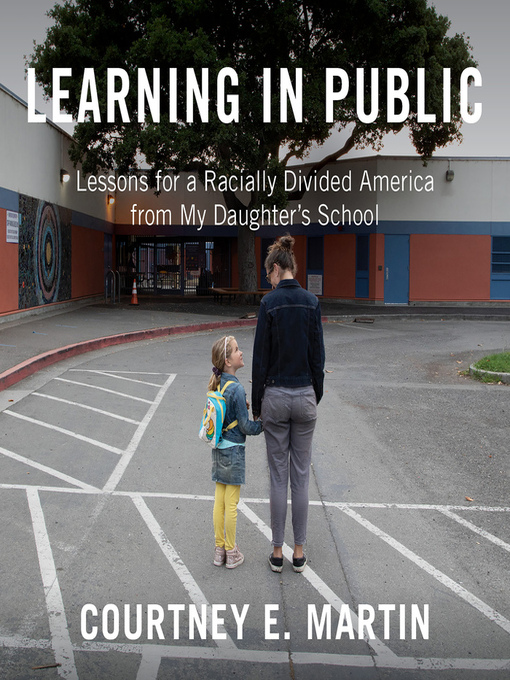This "provocative and personally searching"memoir follows one mother's story of enrolling her daughter in a local public school (San Francisco Chronicle), and the surprising, necessary lessons she learned with her neighbors.
From the time Courtney E. Martin strapped her daughter, Maya, to her chest for long walks, she was curious about Emerson Elementary, a public school down the street from her Oakland home. She learned that White families in their gentrifying neighborhood largely avoided the majority-Black, poorly-rated school. As she began asking why, a journey of a thousand moral miles began.Learning in Public is the story, not just Courtney's journey, but a whole country's. Many of us are newly awakened to the continuing racial injustice all around us, but unsure of how to go beyond hashtags and yard signs to be a part of transforming the country. Courtney discovers that her public school, the foundation of our fragile democracy, is a powerful place to dig deeper.
Courtney E. Martin examines her own fears, assumptions, and conversations with other moms and dads as they navigate school choice. A vivid portrait of integration's virtues and complexities, and yes, the palpable joy of trying to live differently in a country re-making itself. Learning in Public might also set your family's life on a different course forever.



